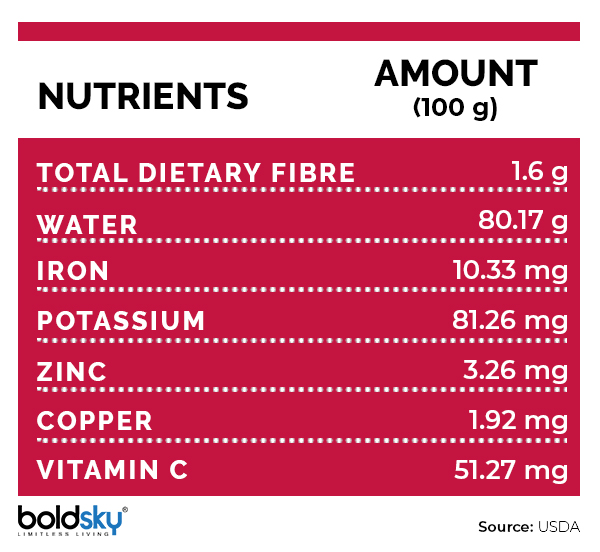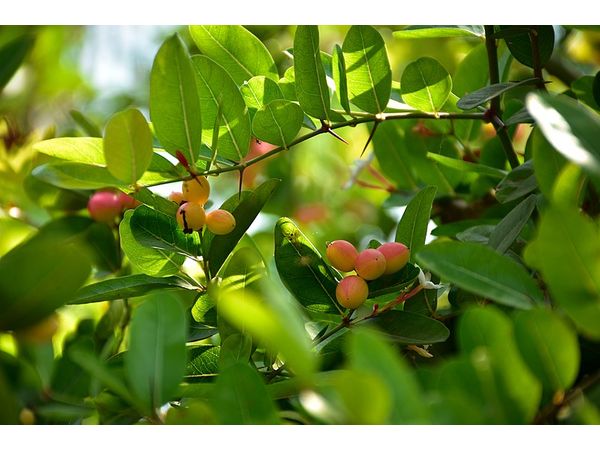Just In
- 2 hrs ago

- 3 hrs ago

- 6 hrs ago

- 6 hrs ago

Don't Miss
- Education
 DU PG Admissions 2024: Delhi University to Begin Applications From Today; Know How to Apply
DU PG Admissions 2024: Delhi University to Begin Applications From Today; Know How to Apply - Movies
 Vahbiz Dorabjee On Being Offered Mother Roles; Losing 10 Kgs & Stunning Transformation: I Was Impacting My…
Vahbiz Dorabjee On Being Offered Mother Roles; Losing 10 Kgs & Stunning Transformation: I Was Impacting My… - News
 Rs 4 Crore Cash Seizure Case: BJP Leader Nainar Nagendran To Appear Before TN Police On May 2
Rs 4 Crore Cash Seizure Case: BJP Leader Nainar Nagendran To Appear Before TN Police On May 2 - Finance
 Rs 7.50/Share Dividend: Adani Group Cement Company Reports Strong Q4 Results; Profit Surges 2x YoY
Rs 7.50/Share Dividend: Adani Group Cement Company Reports Strong Q4 Results; Profit Surges 2x YoY - Automobiles
 Bajaj To Offer Chetak Electric Scooter At Lower Price Point: All Details Here
Bajaj To Offer Chetak Electric Scooter At Lower Price Point: All Details Here - Sports
 Bangladesh vs Zimbabawe: Will Shakib Al Hasan Play Home T20 Series In May Or Not?
Bangladesh vs Zimbabawe: Will Shakib Al Hasan Play Home T20 Series In May Or Not? - Technology
 Qualcomm Reveals Snapdragon X Plus Chip for Laptops: 10 Core CPU, On-Device AI, & Much More
Qualcomm Reveals Snapdragon X Plus Chip for Laptops: 10 Core CPU, On-Device AI, & Much More - Travel
 Escape to Kalimpong, Gangtok, and Darjeeling with IRCTC's Tour Package; Check Itinerary
Escape to Kalimpong, Gangtok, and Darjeeling with IRCTC's Tour Package; Check Itinerary
Health Benefits Of Karonda (Carissa carandas), Nutrition And Recipe
Karonda, scientifically termed as Carissa carandas, is a flowering shrub belonging to the family Apocynaceae. Known by different names such as kerenda in Malaya, Bengal currant or Christ's thorn in South India, namdaeng in Thailand, caramba, caranda, caraunda and perunkila in the Philippines, the entire plant has medicinal values [1] .

The leaves, flower and fruit of the shrub are used for treating various ailments. The berry-sized fruits from the plant have increasingly more health benefits when compared to that of the bark or the leaves. You may consume it like fruits, or avail supplements and dried forms available in the market [2] . The seeds of the fruit have to be removed before consumption.
Having a sour and acidic taste, the fruit tends to get a sweet taste in its ripest state. The fruit has been used in Indian folk medicine since ages. Read on to know the nutrition, health benefits and the ways to add this super berry into your diet.
Nutritional Value Of Karonda
100 grams of the berry has 0.2 mg manganese and 0.4 g soluble fibre. The remaining nutrients present in karonda are as follows [3] :
- 1.6 g total dietary fibre
- 80.17 g water
- 10.33 mg iron
- 81.26 mg potassium
- 3.26 mg zinc
- 1.92 mg copper
- 51.27 mg vitamin C

Health Benefits Of Karonda
From treating asthma to skin diseases, the fruits of karonda possess a plethora of benefits for your body. Let's take a look.
1. Treats abdominal pain
Rich in fibre, the fruit is extremely beneficial for treating abdominal problems. Dried fruit powder can be mixed with water and consumed to ease your stomach and help eliminate indigestion, gas, and bloating [4] .
2. Improves digestion
The presence of pectin in the fruit makes it beneficial for improving your digestion. The soluble fibre improves the functioning of your digestive system, thereby improving your appetite as well [5] .
3. Reduces fever
With an ample amount of vitamin C present in the fruit, it has been used since ages for treating fever [6] . Being an antioxidant, the nutrient helps in bringing down the fever by fighting off the infections. You may consume 10 mg of the dried fruit to manage your fever.
4. Improves mental health
Regular consumption of karonda fruit is asserted to be beneficial for improving one's mental health. The presence of magnesium along with the vitamins and tryptophan help stimulate the production of serotonin - which works towards bettering your overall mental well-being [7] .

5. Strengthens cardiac muscles
Drinking the juice of karonda fruit is extremely beneficial for your cardiac health. Consume 15 to 20 ml of the fruit juice daily to strengthen your cardiac muscles[4] .
6. Treats inflammation
According to studies, karonda fruit can help reduce and treat inflammation. Being inflammatory in nature, consuming the fruit can help suppress the formation of the inflammation-causing agents in your body [8] .
Apart from these, the fruit is also beneficial for treating Ascaris, biliousness, bleeding gums and internal bleeding. Although more studies have to be conducted to essentially point out the health benefits, the fruit is said to possess the ability to reduce excessive thirst and treat anorexia [9] .
Karonda may be beneficial in treating skin disorders, itching, ulcer and epilepsy.

Healthy Karonda Juice Recipe
Ingredients [10]
- 10 karonda fruits
- 1 cup water
- salt and sugar for taste
Directions
- Cut the fruits and remove the seeds.
- Blend the karonda and filter it.
- Add sugar and salt.
Precautions
- Avoid consuming the fruit in large quantities for a longer period as it may affect one's sexual health by reducing the production of semen and leads to low libido [11] .
- Excessive consumption can cause hyper-acidity.
- Unripe fruit can cause a burning sensation.
- It may worsen bleeding disorders [12] .
- [1] Itankar, P. R., Lokhande, S. J., Verma, P. R., Arora, S. K., Sahu, R. A., & Patil, A. T. (2011). Antidiabetic potential of unripe Carissa carandas Linn. fruit extract.Journal of Ethnopharmacology,135(2), 430-433.
- [2] Hegde, K., Thakker, S. P., Joshi, A. B., Shastry, C. S., & Chandrashekhar, K. S. (2009). Anticonvulsant activity of Carissa carandas Linn. root extract in experimental mice.Tropical Journal of Pharmaceutical Research,8(2).
- [3] USDA. (2012). Nutritional composition of karonda. Retrieved from https://ndb.nal.usda.gov/ndb/foods/show/09061?fgcd=&manu=&format=&count=&max=25&offset=&sort=default&order=asc&qlookup=Carissa%2C+%28natal-plum%29%2C+raw&ds=&qt=&qp=&qa=&qn=&q=&ing=
- [4] Hegde, K., & Joshi, A. B. (2009). Hepatoprotective effect of Carissa carandas Linn root extract against CCl 4 and paracetamol induced hepatic oxidative stress.
- [5] Verma, K., Shrivastava, D., & Kumar, G. (2015). Antioxidant activity and DNA damage inhibition in vitro by a methanolic extract of Carissa carandas (Apocynaceae) leaves.Journal of Taibah University for Science,9(1), 34-40.
- [6] Bhaskar, V. H., & Balakrishnan, N. (2015). Analgesic, anti-inflammatory and antipyretic activities of Pergularia daemia and Carissa carandas.DARU Journal of Pharmaceutical Sciences,17(3), 168-174.
- [7] Bhati, P., Shukla, A., & Sharma, M. (2014). Hepatoprotective activity of leaves extracts of Carissa carandas Linn.American Journal of Pharm Research,4(11), 5185-5192.
- [8] Itankar, P. R., Lokhande, S. J., Verma, P. R., Arora, S. K., Sahu, R. A., & Patil, A. T. (2011). Antidiabetic potential of unripe Carissa carandas Linn. fruit extract.Journal of Ethnopharmacology,135(2), 430-433.
- [9] Arif, M., Kamal, M., Jawaid, T., Khalid, M., Saini, K. S., Kumar, A., & Ahmad, M. (2016). Carissa carandas Linn.(Karonda): An exotic minor plant fruit with immense value in nu-traceutical and pharmaceutical industries.Asian Journal of Biomedical and Pharmaceutical Sciences,6(58), 14-19.
- [10] Wing Juice. (2013, June 26). Karonda fruit juice [Blog post]. Retrieved from, http://wing-juice-en.blogspot.com/2013/06/karonda-fruit-juice.html
- [11] Anupama, N., Madhumitha, G., & Rajesh, K. S. (2014). Role of dried fruits of Carissa carandas as anti-inflammatory agents and the analysis of phytochemical constituents by GC-MS.BioMed research international,2014.
- [12] El-Desoky, A. H., Abdel-Rahman, R. F., Ahmed, O. K., El-Beltagi, H. S., & Hattori, M. (2018). Anti-inflammatory and antioxidant activities of naringin isolated from Carissa carandas L.: In vitro and in vivo evidence.Phytomedicine,42, 126-134.
-
 healthCommon Cold: Causes, Symptoms, Risks, Effective Remedies And More
healthCommon Cold: Causes, Symptoms, Risks, Effective Remedies And More -
 healthDengue 101: Causes, Symptoms, Risks, Complications, Treatment, Prevention, Diet And More
healthDengue 101: Causes, Symptoms, Risks, Complications, Treatment, Prevention, Diet And More -
 healthUnbelievable! Malaysia's Plan To Eradicate Dengue Fever With Mosquitoes
healthUnbelievable! Malaysia's Plan To Eradicate Dengue Fever With Mosquitoes -
 wellnessTry These 5 Hot Beverages For Relief From Common Cold
wellnessTry These 5 Hot Beverages For Relief From Common Cold -
 healthViral Infection vs. Dengue: How Are The Symptoms Different?
healthViral Infection vs. Dengue: How Are The Symptoms Different? -
 wellness4 Best Home Remedies For Body Pain Caused By Dengue Fever
wellness4 Best Home Remedies For Body Pain Caused By Dengue Fever -
 wellnessGuduchi (Giloy) For Dengue: Can This Herb Reduce Dengue Fever Symptoms?
wellnessGuduchi (Giloy) For Dengue: Can This Herb Reduce Dengue Fever Symptoms? -
 healthHow To Use Neem Leaves For Dengue Symptoms? Does It Reduce Fever?
healthHow To Use Neem Leaves For Dengue Symptoms? Does It Reduce Fever? -
 pregnancy parentingInfant Care During Dengue Fever: Keeping Your Baby Safe in Mosquito Season
pregnancy parentingInfant Care During Dengue Fever: Keeping Your Baby Safe in Mosquito Season -
 healthFenugreek Leaves For Dengue: Can The Leaves Treat Dengue Fever Symptoms?
healthFenugreek Leaves For Dengue: Can The Leaves Treat Dengue Fever Symptoms? -
 healthThe Secret Link between Cold Weather and Flu Unveiled!
healthThe Secret Link between Cold Weather and Flu Unveiled! -
 healthWhat Does The Sound Of Your Cough Say About Your Lung Health?
healthWhat Does The Sound Of Your Cough Say About Your Lung Health?


 Click it and Unblock the Notifications
Click it and Unblock the Notifications



